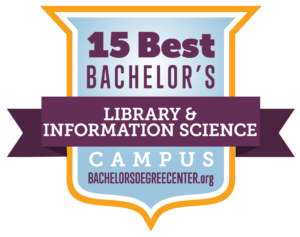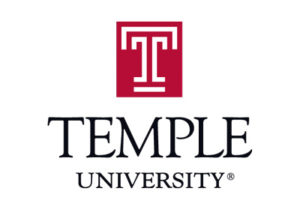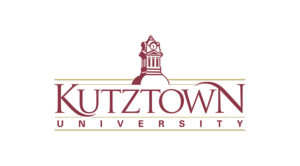
Library and Information Science are part of one of the most exciting and rapidly evolving fields of the 21st century. Earning a Bachelor of Library and Information Science degree is ideal for individuals who are interested in the field of education or wanting to learn how to manage large amounts of information. This type of degree can open the door for you to learn more about becoming a librarian or other capacity in which you help individuals find the information they need for their personal, professional, or academic careers.
You will want to choose a Library and Information Science program on what your individual needs are. Some programs are designed to help students who intend to work in a library or other environment where much of the information to be managed is of a physical nature. This can mean books, newsprint, magazines, video, photographs, or actual files. Working with information in a traditional or physical form is much different than being able to find things online. Modern library and information science are as close to data analytics as they are to the shushing librarian of yesteryear.
Methodology: Rankings the Best Library and Information Science Degrees
For the Bachelor’s Degree Center ranking of the best Library and Information Science bachelor’s programs, editors researched trusted, accredited colleges and universities. Program rankings are based on factors including cost, reputation, and salary potential, using data from Niche and IPEDS.
1. University of North Carolina at Chapel Hill

The University of North Carolina at Chapel Hill’s BS in Information Science offers students the best undergraduate degrees for library science on the east coast. Students are taught how to effectively manage large quantities of information so that it can be easily retrieved and utilized by whoever needs it. With a Bachelor of Science in Information Science (BSIS), the graduate can take control of their future and choose the employment opportunities they think will help them build the strongest and most lucrative career.
The University of North Carolina at Chapel Hill is well-known for its advanced academic curriculums. Students have access to a large number of resources that allow them to delve deeper into their studies and learn as much as they possibly can prior to their graduation.
What We Like: Award-winning faculty members are available when they are needed to lend a hand and give students the encouragement they need to move past obstacles and take on new challenges.
Degree: BS in Information Science (BSIS)
University of North Carolina at Chapel Hill BS in Information Science
2. University of Illinois

The University of Illinois’s BS in Information Science offers one of the best undergraduate degrees for information science in the Midwest. Each student receives the knowledge and the skills they need to work in a variety of fields, such as education, health care, business and finance, arts and communications, and government. A graduate who has earned their BS in Information Sciences has the ability to map out their future and pursue almost any career they choose within that field. With this type of degree, the groundwork for their future will be solid.
At the University of Illinois, state-of-the-art technology and quality academic curriculums lay the foundation for a positive learning environment. The University is well-known across the country for offering students every possible advantage when it comes to a diverse, well-rounded educational program.
What We Like: After graduation, the students are able to take their new skills and forge a career they love. With the help of the faculty and staff, they can take on every challenge and have the confidence to succeed.
Degree: BS in Information Sciences
University of Illinois BS in Information Science
3. University of Maryland

The University of Maryland’s BS in Information Science offers the best undergraduate degrees for library science available. A student who chooses to enroll in this type of program receives management and organizational skills they can use to further their careers. Working with large amounts of data involves being having great attention to detail and being able to categorize information by subject matter and content. Earning a BS in Information Science gives you a chance to build a carrier working in an environment where you are surrounded by massive amounts of information.
The University of Maryland is well known for its excellent degree programs and accomplished faculty members. The resources offered by the university provide students with the extra support they need to move forward when building their careers.
What We Like: Whether they choose to pursue their educational goals online or in the classroom, students have access to all of the resources they need to embark on a career they can be proud of.
Degree: BS in Information Science
University of Maryland BS in Information Science
4. Cornell University

Cornell University’s BA in Information Sciences offers students the best undergraduate degrees for library science available for students who are interested in working with information and data. The skills they learn will assist them in being able to correctly perform all of the tasks they will be responsible for once they are employed in their chosen career field. Earning a BA in Information Sciences allows students to enjoy opportunities they may not have otherwise had. These new opportunities mean more responsibility and higher earning potential.
Cornell University is one of the leading schools of higher learning when it comes to advanced technology and information sciences. Award-winning curriculum and accomplished faculty members provide students with every possible advantage. These advantages will continue to serve them for the rest of their lives, both while at work and in their personal lives.
What We Like: The university strives to always make sure that each student graduates with the skills they need to succeed.
Degree: BA in Information Studies
Cornell University BA in Information Sciences
5. Michigan State University

Michigan State University’s BA in Information Science provides students with the best BA in Information Science in the state of Michigan. Students are able to manage, organize, and utilize large amounts of information that can be used for a variety of purposes. They will be able to explorer opportunities in many different fields, including education and research. With a BA in Information Science, students can begin to explore career options before they graduate by taking on internships and mentorships with those who are already working in the field.
Michigan State University is a leader in its field when it comes to library and information sciences. The university is known for academic excellence as well as award-winning faculty members who are dedicated to providing their students with the hands-on education they deserve. Each student is offered the support and encouragement they need to set their goals and reach them.
What We Like: Graduates of the university are able to build on the skills they have learned and continue to advance their career.
Degree: BA in Information Science
Michigan State University BA in Information Science
6. University of South Florida

The University of South Florida’s BS in Information Science gives students a chance to enroll in the best undergraduate degrees for library science in the southeastern states. The skills they learn are invaluable when they enter the workforce. They will be able to efficiently work with massive amounts of information quickly and easily. A BS in Information Science makes it possible for the student to create the career they have always wanted in an environment where they can continue to thrive and grow.
The University of South Florida has many of the best degree programs for students who are interested in working in the informational sciences field. Faculty members provide support and insight that students can rely on when they are facing new challenges or exploring new career opportunities.
What We Like: Graduates can start to build their career prior to leaving school and already have several employment options lined up that they can pursue when they are ready. Once they are on their way, their education will pay off.
Degree: BS in Information Science
University of South Florida BS in Information Science
7. University of Arizona

The University of Arizona’s BA in Information Science and Arts gives students an opportunity to earn the best undergraduate degrees for library science in the southwest. Students learn a wide variety of skills that they can use in many different fields. They learn how to use best practices when it comes to the management and organization of large amounts of data. With a BA in Information Science and Art, the graduate is able to take what they have learned and use it in many different capacities. Some may become educators, while others may explore research opportunities.
The University of Arizona offers students a level of excellence in academia that is unrivaled in the area. Professional faculty and staff make themselves available for students when they need them the most. They offer guidance and support that a student can rely on when they are facing new challenges and overcoming obstacles that may be in their path.
What We Like: Students who graduate from the university can look forward to a long and rewarding career they can be proud of.
Degree: BA in Information Science and Arts
University of Arizona BA in Information Science and Arts
8. Temple University

Temple University’s BA/BS in Information Science and Technology offers students one of the best undergraduate degrees for library science in the area. Students are able to learn valuable skills they will need if they plan on working in the library and information sciences field. Organization and information management skills are a necessary part of this degree program. A BA/BS in Information Science and Technology degree ensures students are fully prepared to enter the workforce after they graduate. Many of their skills will be evergreen and will benefit them for many years to come.
Temple University offers students exemplary degree programs, as well as internships and other programs that allow students to explore their career options long before they actually graduate. Faculty and students work together so that every opportunity is taken to ensure employment opportunities are available after graduation.
What We Like: Faculty members interact with students in and out of the classroom to ensure they are engaging in as many activities as possible, so they get the most out of their educational experience.
Degree: BA/BS in Information Science and Technology
Temple University BA/BS in Information Science and Technology
9. University of South Carolina

The University of South Carolina’s BS in Information Science offers students a chance to earn one of the best undergraduate degrees for library science in the Carolinas. Managing and organizing large amounts of data can be overwhelming tasks. Students are taught skills and techniques that allow them to be effective and efficient at what they do. Earning a BS in Information Science degree will lay the foundation for a very long and lucrative career they will enjoy. Those who enjoy working with information, can find work in many different fields, applying their skills so that anyone who needs access to vital information will be able to get it.
The University of South Carolina has one of the most advanced degree programs available to students who are interested in this unique and incredibly diverse career field. Students are able to enjoy a positive learning environment that allows them to explore career options while making the most out of their education and what the university has to offer. There has never been a better time to explore future employment options.
What We Like: Students can rely on professional faculty members and the many resources they provide to help them achieve all of their career goals.
Degree: BS in Information Science
University of South Carolina BS in Information Science
10. University of North Carolina at Greensboro

The University of North Carolina at Greensboro’s BS in Information Studies provides students with a chance to earn one of the best undergraduate degrees for library science in the area. Students will begin to understand the concepts and protocols that are used when dealing with large amounts of data. They will be able to apply the skills they learn to a wide variety of jobs in the information sciences field. With a BS in Information Studies, graduates can look forward to a long and very productive career as well as many opportunities for advancement.
The University of North Carolina at Greensboro has been one of the most well-known schools around, primarily for its dedication to academic excellence. The scholarships and student programs allow students many educational opportunities they may not have at other schools.
What We Like: Award-winning faculty members are available to make sure students have everything they need to succeed once they take their first job and start to build their careers.
Degree: BS in Information Studies
University of North Carolina at Greensboro BS in Information Studies
11. Syracuse University

Syracuse University’s Information Management and Technology bachelor’s offers students the best undergraduate degrees for library science available. Students are given every chance to learn about the best practices and tools being used in the field today. The skills they receive can be applied in many different areas including traditional management roles. With an Information Management and Technology degree students can start their career while they are still in school by entering into internships and other school programs.
Syracuse University is an outstanding leader in education due to its award-winning faculty, advanced curriculum, and long list of student resources. Every student has access to faculty and resource programs that make it possible to overcome almost any obstacle. Students are set for success from the very beginning.
What We Like: With the education they receive through the award-winning degree programs, they have everything they need to continue to move forward and take on more responsibilities.
Degree: Information Management and Technology
Syracuse University Information Management and Technology
12. University of Wisconsin Milwaukee

The University of Wisconsin Milwaukee’s BS in Information Science and Technology provides students with the best undergraduate degrees for library science available in the upper Midwest. Students will be able to perform a wide variety of tasks that are commonly performed in within the information science field. They can look forward to working in very diverse environments as well as explore many new opportunities along the way. With a BS in Information Science and Technology students have every possible advantage when it comes to moving forward with their careers and increasing their earning potential.
The University of Wisconsin Milwaukee prides itself on being able to give each of its students the academic programs they need to succeed in whatever career path they choose. They also offer several scholarships and internship programs that students can take advantage of.
What We Like: Along with the resources and the award-winning faculty members, students are given a learning environment in which they can thrive. Each student leaves the university knowing they can accomplish all of their goals.
Degree: BS in Information Science and Technology
University of Wisconsin Milwaukee BS in Information Science and Technology
13. Southern Connecticut State University

The best undergraduate degrees for library science are being offered by Southern Connecticut State University’s BS in Information Management and Services. Students learn the concepts, techniques, and skills that are required for them to be proficient at each of their tasks. Taking the initiative to earn an Information Management Services (IMS) BS degree allows them to expand on their goals and look for new opportunities they can use to advance their careers and take on more responsibilities and improve their ability to earn.
At Southern Connecticut State University every student receives valuable resources and quality time with faculty members so that they have every possible advantage. The learning environment is diverse and friendly with few distractions. Students can choose from a variety of programs such as internships, scholarships, and mentoring so they can make their learning experience as enjoyable as possible.
What We Like: After graduation, they can take what they have learned and begin to build a solid and productive career.
Degree: Information Management and Services (IMS) BS
Southern Connecticut State University BS in Information Management and Services
14. Kutztown University

Kutztown University’s BSEd in Library Science provides each student with the best undergraduate degrees for library science possible. The skills and concepts that are taught give students everything they need to be able to complete the tasks that are assigned to them. This includes categorizing, managing, and dispersing large amounts of information at a time. With a Bachelor of Science in Education, students can expect to be able to work as an educator or as part of a team that develops educational tools.
Kutztown University has a reputation for being one of the beset schools in the area when it comes to the number of students per teacher. This low ratio ensures that students get everything they need to succeed, from help with academic obstacles to providing them with guidance and support.
What We Like: In addition to the resources and scholarship opportunities, students are given the boost they need to enter the workforce with confidence in both themselves and their abilities.
Degree: BS in Library Science
Kutztown University BSEd in Library Science
15. University of Arkansas Little Rock

The University of Arkansas Little Rock’s BS in Information Science offers the best undergraduate degrees for library science available to students who are interested in that field of study. Students are given the necessary skills and information to be able to work effectively in any field that library sciences is involved with. Students who enjoy working with large amounts of information will thrive in this environment. By earning a BS in Information Science, the student can look for work in a variety of industries and become valuable assets.
The University of Little Rock is one of the leaders in the area when it comes to providing quality educational programs that students can rely on if they want to succeed. Faculty members are accomplished professionals with many years of experience. They are able to give students sound advice that comes from years of working in the field.
What We Like: Every graduate can look forward to using the skills and resources they were given during their educational experience.
Degree: BS in Information Science
University of Arkansas Little Rock BS in Information Science
Why Should I Get a Library and Information Science Degree?
Library and information science can be very diverse and with today’s advanced technology, individuals can pursue this type of career working in a physical location or by working remotely. The ability to gain access to massive amounts of information over the internet makes it possible for graduates who have earned a Bachelor of Library and Information Science to work in any location they choose. While most continue to work in a library or other large resource center, others are choosing to explore employment options that allow them to work from home.
The ability to utilize large amounts of information can be very useful. If you work with students or individuals who perform research on a regular basis, it’s essential that you know how to access and use the information at your disposal. Whether you are looking for information online or through the systems that are in place in most libraries, it is essential for you to be proficient in both. The Dewey Decimal System is still widely in use even though some libraries have started using more modern techniques.
What Is Library and Information Science?
Library and information science is the study of how to organize and manage large amounts of data. Prior to the internet, much of this information was kept in libraries or depositories where it could be easily accessed through highly detailed information systems. With today’s advanced technology, information can now be accessed using the internet. Most universities encourage the use of traditional forms of research, such as that performed in a library, as well as the use of internet searches.
Managing and organizing massive amounts of information can be quite a task, but with today’s technology it can be accomplished in a fraction of the time it would have taken in the past. The science behind managing information involves understanding how information is classified and organized. Certain types of information may fall under multiple classifications so it is important to make sure that it can be found in each of the areas in which it belongs. Understanding how to cross-reference and perform these tasks are basic and fundamental concepts.
Library and information sciences also include being able to use the tools and resources that are involved in accessing and utilizing the information that is needed. Students and researchers are often given the task of finding information that may not be on the internet. They must then learn how to use the more antiquated methods of research. Science knows no age and, in some cases, being able to use older pieces of equipment may work to their advantage. The ability to work in both a physical as well as a digital environment is important if you want to be successful.
How Do I Choose a Library and Information Science Program?
Students who prefer to work in a digital environment will require a more technological approach to their studies. Online degree programs can be used for learning either type of work and will give both a chance to learn while they are working. The program you choose must be able to support your career goals. While it is important to be able to gain the information you need, the program that you decide on will have to include the skills and abilities that you will require once you get the job you have always wanted.
It’s also important to choose an accredited program or an accredited school. When dealing with information, accuracy and reliability are extremely important. Many people choose their program based on their school preference. If you like a specific school, check out their programs carefully. If they do not provide you with everything you need, you will want to look at other schools that do. Your education is one of the most important investments you will ever make. Always make sure to do what is right for your career and your future. Take your time when choosing a degree program.
Related Ranking:
